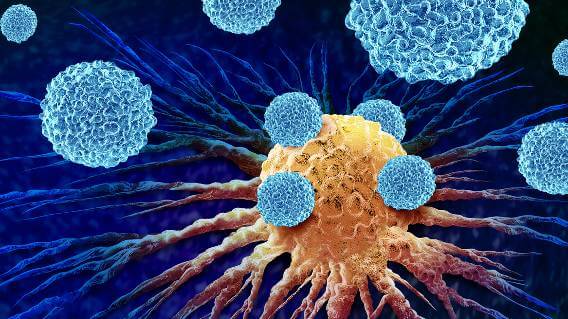Mesothelioma Immunotherapy Receives Orphan Drug Designation

A novel therapy for mesothelioma has been given orphan drug designation by the U.S. Food and Drug Administration.
Avenge Bio, a biotechnology company working on a new treatment platform for immunotherapy, announced it was granted the designation for its drug AVB-001 in June. It is currently enrolling patients in ongoing phase 1 and phase 2 clinical trials for the treatment of advanced ovarian cancer, primary peritoneal mesothelioma and fallopian tube cancer.
AVB-001 is a new treatment being developed by Avenge Bio using its LOCOcyte immunotherapy platform to treat solid tumors. It’s a first-in-human, single-arm, open-label, dose-escalation and expansion trial that is looking to assess the safety and tolerability for certain cancer patients.
Clinical Trials Now Enrolling
Avenge Bio is now enrolling an estimated 44 patients into its two-part clinical trial. The first phase is a dose escalation phase to determine the maximally tolerated dose and will be used for phase 2, a dose expansion phase.
The drug will be administered in up to 20 additional adult patients with “platinum-resistant, high-grade, serous adenocarcinoma of the ovary, primary peritoneum, or fallopian tube,” according to the company’s clinical trial information. There may be additional cohorts opened in phase 2 for “monotherapy or as an exploratory combination strategy.”
The study began in December 2022 and is estimated to be completed in August 2026. Among other qualifications, eligible candidates for the clinical trial must:
The clinical trial is being held at three locations: Massachusetts General Hospital in Boston, Women & Infants Hospital of Rhode Island in Providence and MD Anderson Cancer Center in Houston.
What Is Orphan Drug Status?
Orphan drug status is a special designation given to drugs or treatments intended to treat rare diseases or conditions – including mesothelioma – that affect a relatively small number of patients.
Supporting the development and evaluation of new treatments for a rare disease, typically affecting less than 200,000 Americans, has benefits for the maker, according to the FDA. Orphan drug designation qualifies sponsors for incentives that include tax credits for qualified clinical trials, exemptions from user fees and the potential for seven years of exclusive marketing after approval.
Ovarian cancer is linked to occupational and secondhand asbestos exposure, according to the International Agency for Research on Cancer. It is also linked to contaminated talcum powder products.
Recent studies have linked asbestos exposure to an increased risk of ovarian cancer, particularly among women who may have used asbestos-contaminated talcum powder. Advanced stages of ovarian cancer, in which the cancer has spread to distant organs in the patient’s body, has a 5-year survival rate of 17%.